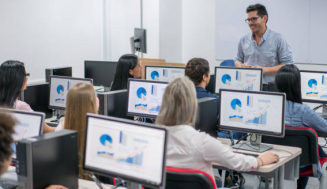Bece Past Questions & Answers – 2005 (SOCIAL STUDIES)
APRIL 2005
SOCIAL STUDIES
SECTION B ESSAY
1 hour
Answer three questions only, choosing one question from each section.
Credit will be given for clarity of expression and orderly presentation of material
All questions carry equal marks
PART I
GOVERNMENT, POLITICS AND STABILITY
Answer one question only from this part.
1. (a) Name four ethnic groups in Ghana.
(b)
Give any four reasons for the movement of the named ethnic groups to their present settlements.
2.
(a)
Mention four international organizations of which Ghana is a member
(b)
Which four benefits does Ghana enjoy from its membership of any one of the international organizations mentioned in (a)?
PART II
OUR ENVIRONMENT
Answer one question only from this part
3. (a) Describe the formation of relief rainfall.
(b) Mention two areas in Ghana which experiences relief rainfall.
(c)
List two benefits of rainfall.
4.
(a) (b)
Identify any four social problems of rapid population growth in Ghana. Suggest any four ways of reducing population growth in Ghana.
PART III
SOCIAL AND ECONOMIC DEVELOPMENT
Answer one question only from this part.
5. (a) (i) What is a Non-Governmental Organization?
(ii) Identify any three Non-Governmental Organizations in Ghana.
(b) Explain any four contributions of Non-Governmental Organizations to the development of
Ghana.
6. (a) (i) What is a state owned enterprise?
(ii) Identify any four problems that face state owned enterprises in Ghana.
(b) How can the problems identified in (a) (ii) be solved? CLICK TO VIEW ANSWERS TO PART 2
SOCIAL STUDIES
SOLUTIONS
SECTION B
ESSAY
PART I
GOVERNMENT, POLITICS AND STABILITY
7. (a) Ethnic groups in Ghana.
(i) Akan
(ii) Ga-Dangbe (iii) Mole-Dagbani (iv) Ewe
(v) Guans
[any four]
(b) Reasons for the movement of the named ethnic groups to their present settlements.
(i) To get fertile lands for farming
(ii) To be close to the sea and other water bodies for fishing and domestic use
(iii) To attain peace, stability and security
(iv) To avoid natural disasters
(v) To locate themselves well for effective commercial activities
[any four]
8. (a) International organizations of which Ghana is a member
(i) Economic Community of West African States [ECOWAS]
(ii) African Union (AU) [former Organisation of African Unity (OAU)] (iii) The Commonwealth of Nations
(iv) Non-aligned Movement
(v) United Nations Organization (UNO)
[any four]
(b) Benefits Ghana enjoys from its membership of international organizations
(i) Benefits from Economic Community of West African States [ECOWAS]
– Free movement of citizens, goods and services
– Joint economic and developmental ventures, eg, West Africa Gas Pipeline
– Reduction in duties and other charges for trade with / in member countries
– Increased market size for locally produced goods and services
– Improvement in transport and communication
– Peace and stability in the sub-region
– Promotion of sports and culture among member states
(ii) Benefits from African Union (AU) [former Organisation of African Unity (OAU)]
– Assistance in fight against colonialism
– Financial assistance for certain developmental projects
– Unity and peace with other African states
– Promotion of sports and culture among countries
– Larger market size for local products
(iii) Benefits from The Commonwealth of Nations
– improvement of education
– Promotion of sports and culture
– Promotion of democracy and good governance
– Facilitation of trade with other member countries
– Technology transfer
(iv) Benefits from The United Nations Organization (UNO)
– Loans and grants from the IMF and the World Bank to support development projects
– Health delivery services provided by the WHO
– International recognition as a result of our membership of the UNO
– Rural developmental projects by the UNDP
– Food and Agricultural developmental programmes by the FAO
– Employment of Ghanaians at the UNO and its specialised agencies.
– Support for Ghana‟s democracy by supply of international observers during general
elections
[any four]
PART II
OUR ENVIRONMENT
9. (a) Formation of relief rainfall.
• Air mass / wind blows towards a highland / mountain
• The air mass is forced upwards on the windward side
• The rising air cools (adiabatic cooling) and condenses to form cumulus clouds
• The cumulus clouds develop into cumulus congestus then into cumulonimbus clouds as cooling continues
• The cumulonimbus clouds condense further and fall as rain
The rain is heavier on the windward side than on the leeward side.
(b) Areas in Ghana which experiences relief rainfall.
Aburi, Akuapem Mampong, Larteh, Amedzofe, Kwahu, Asante Mampong, [any two]
(c) Benefits of rainfall.
(i) Softens the ground for easy ploughing and sowing
(ii) Makes plants grow well
(iii) Provides water for domestic use (bathing, washing, etc) (iv) Provides water for irrigation of farms
(v) Makes the weather cooler for greater comfort
(vi) Supplies water to increase the volume of water bodies
[any two]
10. (a) Social problems of rapid population growth in Ghana.
(i) Environmental degradation (ii) Higher Unemployment rate (iii) Increased traffic jams
(iv) Increased armed robbery
(v) Prostitution
(vi) Quicker spread of diseases
(vii) Teenage pregnancy
(viii) Poverty
(ix) Early marriages
(x) Pressure on social amenities
(xi) Drug abuse
(xii) Higher crime rate
(xiii) Broken homes
(xiv) Congestion / over-crowding
[any four] (b) Ways of reducing population growth in Ghana.
(i) Encouraging relatively late marriages
(ii) Promoting the use of family planning methods
(iii) Public education on the need to adequately space child bearing (iv) Check the inflow of immigrants – nationals from other countries (v) Intensifying education on adolescent reproductive health.
(vi) Avoiding teenage and unplanned pregnancies by abstaining from sex or using appropriate contraceptive methods.
(vii) Promoting the girl-child education campaign.
(viii) Legislation – making laws to control marriage and child birth
[any four]
PART III
SOCIAL AND ECONOMIC DEVELOPMENT
11. (a) (i) A Non-Governmental Organization?
An independent organization that is not owned or managed by the government
(ii) Non-Governmental Organizations in Ghana.
Plan International
Save The Children
The Hunger Project
Department for International Development (DFID)
World Vision International
Canadian International Development Agency (CIDA)
Japan International Cooperation Agency (JICA)
Action Aid Ghana
Technoserve
United States agency for international development
Action on Disability and Development(ADD)
African Youth Alliance (AYA)
[any three]
(b) Contributions of Non-Governmental Organizations to the development of Ghana.
(i) Provision of financial grants to farmers, groups, disabled people, etc
(ii) Provision of micro credit facilities to farmers, groups, disabled people, etc
(iii) Promotion of Education by construction of school building, provision of educational materials, scholarships, etc
(iv) HIV / AIDS sensitization to help check the spread of the disease.
(v) Provision of relief services in cases of natural disasters.
(vi) Support to the agro-processing industry to boost the agricultural industry. (vii) Provision of potable water (pipe-borne and borehole) for communities
(viii) Construction of health facilities, such as hospitals, polyclinics, health posts, etc to improve health delivery.
(ix) Construction of markets to help with commercial activities
[any four]
12. (a) (i) State owned enterprise
An enterprise that is owned and managed by the government
(ii) Problems that face state owned enterprises in Ghana.
Low productivity – Many SOEs are producing at levels well below their capacities.
Incompetent and inefficient staff – Some SOEs are staffed with personnel with relatively low levels of training, experience and skills.
Inadequate use of modern / current technology – Many SOEs are still using outmoded technologies, which make work uninteresting and less productive
Poor working attitude of staff – The working attitudes of many workers in several
SOEs are simply destructive (negative)
Political inconsistencies / interference– Each political party that comes to power has different ideas on how the SOEs must be managed. Hence, there is no political consistency.
Insufficient funds / capital – Many SOEs do not have the needed funds to operate at optimum (best / highest) levels.
Bribery, Corruption and Embezzlement – Almost all SOEs in Ghana are perceived to have various levels of bribery, corruption and embezzlement present in them.
Lack of trust by general public – the general public seems to have a low level of trust in SOEs.
Excessive patronage of services – There is excessive patronage of (extreme pressure on) some SOEs products and services due to the affordable rates and the monopoly („one man show‟) that some of them have.
[any four]
(b) How the problems identified can be solved
(i) Employing workers with the right training, knowledge, skills and attitudes. (ii) Ensuring the correct use of efficient working tools
(iii) Taking measures to reduce political interference /control.
(iv) Applying current / modern technology to increase production
(v) Adequate funding by the state
(vi) Providing regular in-service training and refresher courses for workers.
(vii) Motivating workers with various incentives, such as, awards/rewards, scholarships for further studies
(viii) Paying fair wages and salaries to workers
(ix) Ensuring effective and regular supervision, monitoring, assessment and evaluation. (x) Making sure that the working environment is comfortable and conducive for work
(xi) Financial institutions should be more willing to offer more credit facilities for growth and
expansion of businesses
(xii) Codes of ethics at workplaces must be studied and applied regularly
(xiii) Ensuring effective management and administration
(xiv) Effective planning and implementation






